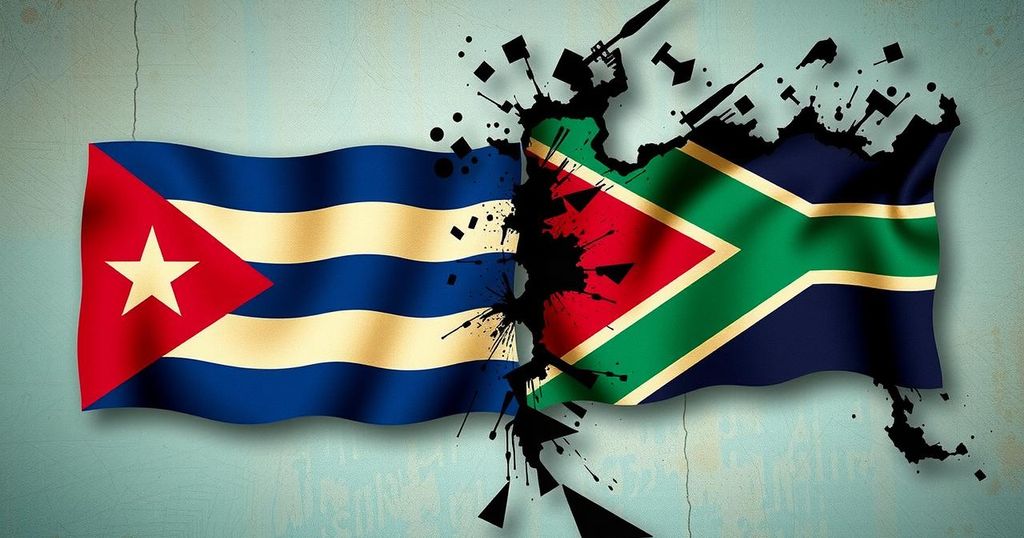Cuba Joins South Africa’s Genocide Case Against Israel at ICJ

Cuba has joined South Africa’s genocide case against Israel at the ICJ, which accuses Israel of violating the 1948 Genocide Convention. This action allows Cuba to provide its legal interpretations regarding key articles of the Convention, while inviting further responses from both parties involved. Several nations have previously participated in this ongoing legal matter, marking significant international interest.
Cuba has officially joined the genocide case brought by South Africa against Israel, as announced by the International Court of Justice (ICJ). This significant legal action, initiated by South Africa on December 29, 2023, accuses Israel of contravening the 1948 Genocide Convention. According to Article 63 of the ICJ Statute, any country party to the Genocide Convention is allowed to participate in court proceedings concerning the interpretation of its provisions. This intervention highlights Cuba’s commitment to addressing allegations of genocide within international law.
Cuba, being a signatory to the 1948 Genocide Convention, plans to provide interpretations regarding several key articles, including Articles I, II, III, IV, V, VI, VIII, and IX, as confirmed by the ICJ. Furthermore, in accordance with Article 83 of the ICJ’s rules, both South Africa and Israel have been invited to submit their written comments concerning Cuba’s declaration of intervention. This situation has garnered international attention, with various nations, including Nicaragua, Colombia, Libya, Mexico, Palestine, Spain, Turkey, and Ireland, previously joining the ongoing case.
This unfolding situation arises within a broader context of legal challenges and geopolitical tensions surrounding the Israeli-Palestinian conflict. The 1948 Genocide Convention was established to prevent and penalize acts of genocide, and countries who are signatories can seek to intervene when violations are alleged. The ICJ serves as the principal judicial organ of the United Nations, addressing state disputes and providing advisory opinions on legal questions. The continuous involvement of various nations in the case underlines the worldwide implications of the allegations against Israel and the legal framework designed to protect human rights.
In conclusion, Cuba’s involvement in South Africa’s genocide case against Israel marks a notable development in international law and its application to the ongoing Israeli-Palestinian conflict. By invoking the provisions of the 1948 Genocide Convention, Cuba aims to contribute to the legal discourse surrounding allegations of genocide, affirming the role of the ICJ in interpreting and enforcing international standards. This case has attracted a diverse coalition of countries, reflecting a global concern for accountability and justice regarding alleged human rights violations.
Original Source: en.royanews.tv








